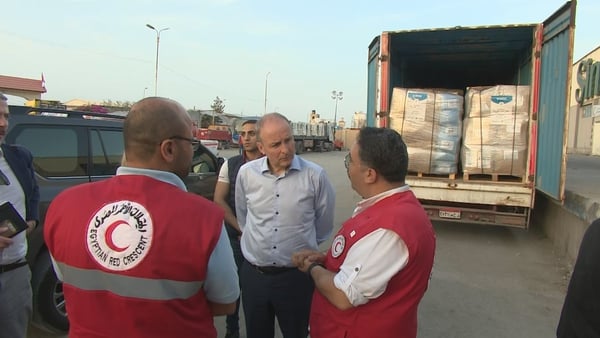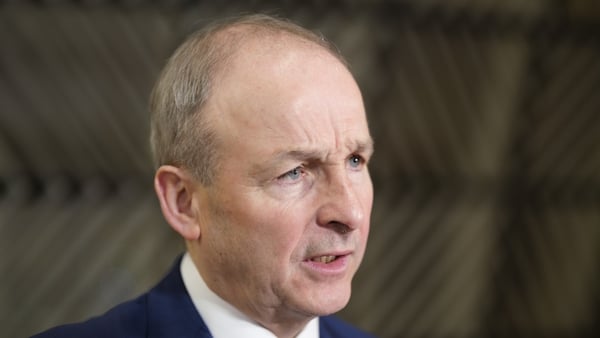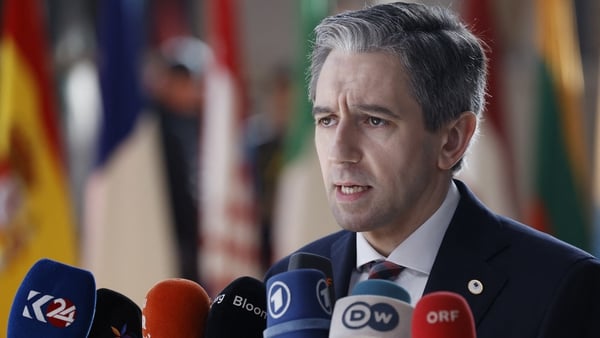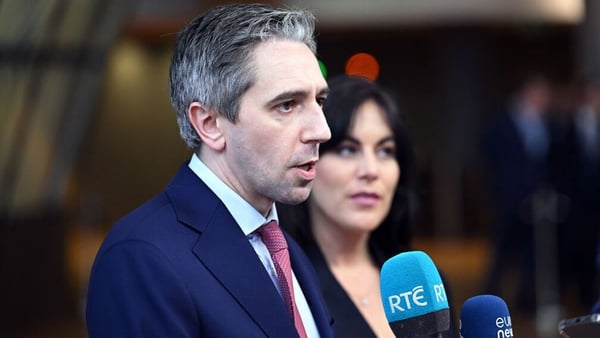Two stories emerged in Britain this week which gave an inkling about just how brutal exit from the European Union will be.
Deloitte LLP’s memo, reported in The Times, concluded that Theresa May’s government didn’t have a coherent Brexit plan, while the former head of the Foreign Office told the Commons Brexit committee that Whitehall was overwhelmed by the sheer complexity of extricating the UK from 40 years of the EU system.
Downing Street angrily denied both claims, while the right-wing press has swotted away any negativity with garish headlines about a booming economy proving the "Bremoaners" wrong.
But these stories shed light on a growing awareness that the divorce will be very messy. In numerous discussions with officials, the word that occurs time and again is "Nightmare".
The Irish Government has put its concerns up in lights.
They are the border, the peace process, the Common Travel Area between Ireland and the UK, and the future of the EU.
Every stakeholder imaginable on the island will toss these notions around in their sleep, and there is absolutely no doubt that the key EU officials involved are aware and sympathetic.
Michel Barnier, the chief negotiator of the European Commission, regards Northern Ireland as one of the top priorities, alongside Britain’s departure bill, the status of EU agencies in London and the acquired rights of British citizens living in other member states, and those of EU citizens in Britain.
At the summit of EU leaders in Brussels last month, Taoiseach Enda Kenny told reporters that Commission President Jean-Claude Juncker was keen that Ireland was front-loaded into the first part of the negotiations, once Ms May triggers Article 50.
But beneath these big issues lurk a myriad of mini-nightmares that will have an impact on Ireland.
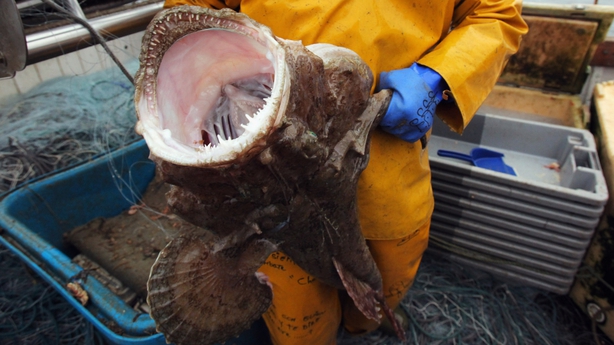 One is fisheries.
One is fisheries.
When the UK leaves the EU, it will leave the Common Fisheries Policy (CFP). Currently Britain’s territorial waters, which stretch from 12 miles to 200 miles, are governed by the CFP when it comes to fishing rights.
Britain could decide to seek, post-Brexit, a bilateral deal with the EU on fisheries and to remain within the CFP, subject to its much maligned quota system and multiple rules.
But this is unlikely. British fishermen have long bemoaned a policy which they say has allowed too many foreign boats in to catch British fish, and they voted heavily to Leave.
As such, it is very likely Britain would assert sovereignty of its coastal waters via the United Nations.
That could have several knock-on effects for Ireland.
Firstly, Irish fishing boats, as well as Spanish, French, Belgian, Dutch, Danish and German vessels currently allowed to fish in British waters, could be turfed out.
British fishermen might also decide to catch fish when they are juvenile in order to prevent them migrating into other EU waters when they are older.
I'm indebted to Ciarán O’Driscoll, an independent research associate of the Socio-Economic Marine Research Unit (SEMRU) at the Whitaker Institute in Galway University for his work on what might happen if British waters were closed to the Irish fleet.
"If Britain was to exit the EU," he wrote in a recent paper, "this principle [of access to other member states] would no longer be in force, putting in place real physical barriers for the Irish fleet from gaining access to Britain’s ports and territorial waters and stocks which straddle Ireland’s waters."
Many Irish fishing vessels rely on British ports to land their catch. The fish landed by Irish fishermen in British ports represents 27% of the total value of all fish landed by Irish vessels abroad. Ireland accounts for 18.5% of all foreign vessels landing their pelagic catch in the UK, and 30% of all shellfish.
Other member states shut out from UK waters would need to look further afield, and they might look no further than Irish waters.
This could fuel longstanding resentment that Irish fishing organisations have nursed about the CFP and the access it allows to foreign vessels. It is true that Ireland got a raw deal on fisheries when we joined in 1973; however, back then Ireland had a small artisanal fleet which had limited capacity to take in large yields.
The situation was partly addressed after Garret FitzGerald negotiated the so-called Hague Preferences in 1983, which gave Ireland (and the UK) increased capacity if their Total Allowable Catches (TACs) fell below a certain level for certain stocks.
The fact remains that were the UK to get exclusive access to its own fishing grounds, Irish fishing communities, often those areas of a eurosceptic hue, might ask why Ireland can't as well. While other countries, notably the Spanish, can fish in Irish waters, Ireland has virtually zero access to fish stocks in the waters of other member states, beyond the UK.
"Ireland has suffered very badly over the years from the fisheries policy", says Sinn Féin MEP Liadh Ní Riada, who has been lobbying fishing communities to prepare for the impact of Brexit.
"Once Britain leaves there will be fewer EU waters to fish in, and a growing number of [member state] flags looking for smaller slices of the overall pie."
If Britain excludes other countries, then EU member states will retaliate. That would most likely mean fishing boats from Northern Ireland being excluded from Irish territorial waters.
Ireland is not the only country terrified of what Britain leaving the EU might mean for fisheries. The Danish fishing industry could collapse if their vessels were suddenly excluded from British waters. The day of the Brexit result, the most prominent Danish sector to make its fears know was the fishing industry.
Overall, the elaborate structure of the CFP would have to be entirely recalculated, another "nightmare" scenario. Under the CFP, fisheries ministers distribute quotas each December on the basis of a long standing notion called "Relative Stability" by which, blocks of the sea have their stocks divvied up among fishing fleets, depending on their size.
One official has grimly pondered the entire system collapsing.
All of these layers of complexity and uncertainty are what terrifies those tasked with sorting out an arrangement that will somehow minimise suffering all round. But hardball is expected. Britain could claim all the fish in its waters, but where would it sell them to? They would most likely be excluded from Europe’s single market. Perishability and taste factors would probably preclude them from the Asian market.
With much of the fish farming in Scotland owned and operating by Norwegians, they could ship the fish to Norway then sell it as Norwegian fish into the single market under Norway’s European Economic Area (EEA) arrangements. But that may not be legal under CFP rules.
The problem is that the EU is reluctant to start launching into wide-ranging and detailed explorations of all these issues for the simple reason that to do so would be to provide the UK with a wedge, one that would allow it to push open negotiations.
But negotiations, for now, are absolutely verboten by Brussels and the other 27 capitals, until Article 50 is triggered.
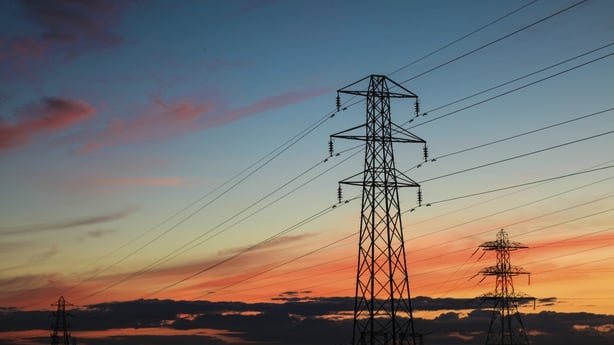 Another worrying issue for Ireland is energy.
Another worrying issue for Ireland is energy.
Ireland is heavily dependent on the UK for energy and it is deeply enmeshed in its grid via the north-south and east-west interconnectors.
On the island of Ireland a Single Electricity Market (SEM) has operated since 2004. Energy is produced, sold into a common pool, and then distributed across the island. It is the first cross-border energy market in the EU and had been something of a model of cross-border energy trading for the rest of the EU.
Although the SEM is a bilateral arrangement, it is heavily influenced by EU law, such as state aid rules. What happens when one part of this market leaves the EU?
Also, the EU provides for disaster relief across Europe and as such each member state is obliged to have a reserve stock of emergency fuel. Ireland’s stock is held in the UK (permitted under the rules). With the UK out of the EU, Ireland may no longer be compliant with the regulation.
With the UK out of the EU’s energy market Brussels could also impose tariffs on British energy, and those tariffs would be a significant hit on Ireland and the cost of Irish energy bills.
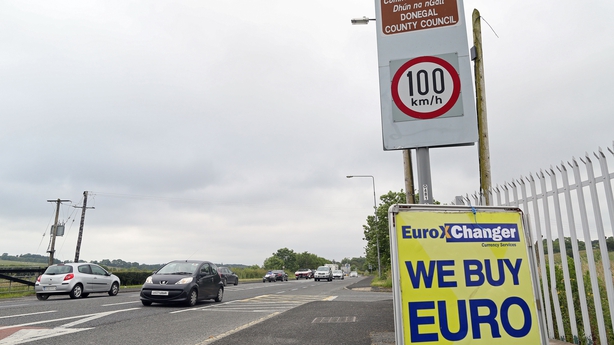 That brings us to the other glaring north-south issue: the border.
That brings us to the other glaring north-south issue: the border.
There's no doubt that the European Commission is well aware of the issue. However, it’s understood that officials are nervous about how to handle it.
While the Government, as a custodian of the peace agreement, is keenly aware – chapter and verse – of the political and constitutional balance of the Good Friday Agreement, officials in Brussels may not appreciate all of the nuances.
As such, this has given the Government key ownership rights, i.e., it's your problem, you explain to us how we should proceed.
Some of the issues are legal minefields. Under the GFA, Northern Ireland citizens will theoretically have all the rights of EU citizens, since they can apply for Irish passports.
Yet they will be living in a non-EU state.
Will Northern Irish citizens be able to have recourse to the European Court of Justice, or to avail of Erasmus study programmes? While having a sense of ownership, Dublin won't have total discretion over these questions: they will still have to be resolved in talks with Belfast and London, and who knows how quiescent those entities might be.
If the UK is out of the customs union, and Foreign Secretary Boris Johnson this week let slip that it probably will be, then there will have to be some kind of border between North and South.
It's understood the aim will be to make it as invisible as possible, without customs posts or border paraphernalia.
Advances in digital systems mean that trucks crossing from the single market (i.e., the Republic) to a third country (i.e., Northern Ireland) may be able to process customs forms electronically before they travel, perhaps with the help of licence-plate recognition software.
But random checks cannot be ruled out.
Likewise, officials are hoping that the long-standing Common Travel Area will provide the continuity needed to get around the free movement of people conundrum. It has long provided citizens in the UK and Ireland with the legal means to move freely between, and enjoy residency rights in, both countries.
While it worked fine when both countries were in the EU, it gets complicated when one is in and the other is out.
Both countries could copper-fasten the arrangement with a tighTer, bilateral agreement that would be outside whatever final settlement is reached between the EU and the UK. But the question of what happens to EU nationals who travel to the Republic of Ireland and then on to the UK via Northern Ireland is a thorny issue.
Post Brexit it's likely that eastern European citizens will be able to travel to the UK either on a tourist visa, or if they have a work permit. According to one scenario, a Bulgarian citizen travels to London on a tourist visa, takes up employment illegally and is then deported.
British immigration officials would likely place his or her name on a blacklist. Such lists in the past, where they have involved non-EU citizens, have been shared with the Irish authorities.
But there would be nothing to stop the Bulgarian citizen on the blacklist from travelling to Ireland, entering freely and then travelling into Northern Ireland. Why? Because they would still be an EU citizen, enjoying free movement from one EU country to another.
People are one thing, goods and services are another. Nearly all the milk produced in Northern Ireland is processed in the Republic, to be sold on or sent back to Northern Ireland. Likewise, pigs in the Republic are sent north for slaughter.
How will that system work when the Republic is subject to single market, animal health and phyto-santiary rules and Northern Ireland isn’t?
The objective will be to make this system continue as smoothly as possible. But how? No-one yet knows.
What will happen to products made in Ireland and exported to the European single market, but which transit through the UK? Again, no-one knows.
The other dilemma for the Government is not only that it has to try to maintain as much continuity as possible; it also has to ensure that, if continuity is not possible, then it does not become disadvantaged.
In other words, the Government must ensure that whatever arrangements Northern Ireland and Britain in general operate under in a post-Brexit future do not commercially disadvantage Ireland.
It will be a formidable task.



